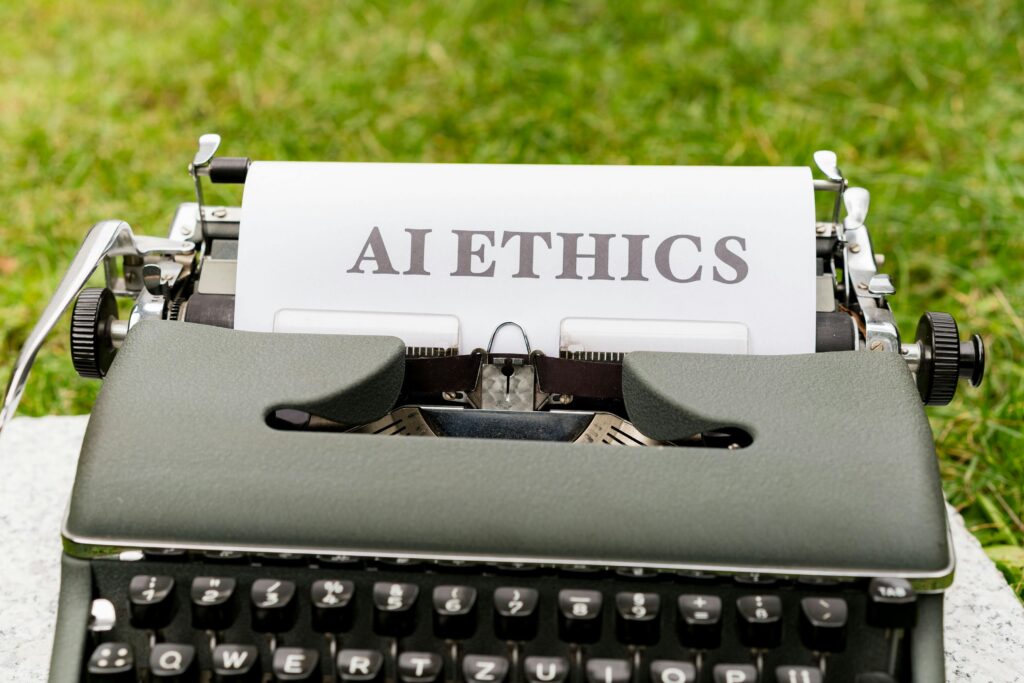accountability play in AI ethics ; Responsibility in simulated intelligence morals is about who is answerable for the activities and choices made by man-made consciousness frameworks.

Grasping Responsibility in computer based intelligence
Responsibility alludes to the commitment of people or associations to make sense of their activities and assume a sense of ownership with the results. With regards to simulated intelligence, this implies figuring out who is obligated when a computer based intelligence framework commits an error or causes hurt.
For instance, on the off chance that an independent vehicle gets into a mishap, questions emerge about whether the maker, the product engineer, or the proprietor of the vehicle ought to be considered capable.
For what reason is Responsibility Significant in AI ethics?
a. Building Trust
At the point when individuals realize that there is an unmistakable responsibility structure set up, they are bound to trust computer based intelligence frameworks. This trust is fundamental for the acknowledgment of artificial intelligence in different fields, like medical services, money, and policing. Assuming clients accept that somebody is responsible for the framework’s activities, they might feel more open to utilizing it.
b. Guaranteeing Reasonableness
Responsibility helps address issues of predisposition and shamefulness in artificial intelligence. Assuming a man-made intelligence framework pursues one-sided choices, it is essential to distinguish who is liable for that result. This urges associations to look at their information and calculations all the more intently, prompting upgrades that advance reasonableness.
c. Empowering Moral Turn of events
At the point when designers realize they will be considered responsible for their simulated intelligence frameworks, they are bound to focus on moral contemplations in their work. This can prompt better-planned frameworks that think about the expected effect on clients and society all in all.
Difficulties of Responsibility in computer base in AI ethics
Deciding responsibility in computer based intelligence can be perplexing. Simulated intelligence frameworks frequently include numerous partners, including engineers, organizations, and end-clients. At the point when a simulated intelligence framework fizzles, it tends to be challenging to pinpoint where the obligation lies. This intricacy makes it trying to make clear responsibility systems.
Another test is that some man-made intelligence frameworks work in manners that are not effectively grasped, even by their makers. In the event that an artificial intelligence calculation pursues a choice in view of profound learning strategies, it tends to be difficult to make sense of why that choice was made. This absence of straightforwardness confounds the issue of responsibility.
Ventures Towards Better Responsibility
To further develop responsibility in computer based intelligence, a few stages can be taken:
Lay out Clear Rules: Associations ought to make clear rules on who is answerable for the activities of computer based intelligence frameworks. This can incorporate characterizing jobs for designers, organizations, and clients.
Advance Straightforwardness: Causing simulated intelligence frameworks more straightforward assists clients with understanding how choices are made. This can include reporting information sources, calculation plan, and dynamic cycles.
Energize Open Discourse: Connecting with partners in conversations about man-made intelligence morals can assist with distinguishing potential responsibility issues right off the bat. This coordinated effort can prompt better practices and approaches.
conclusion
Responsibility is an essential part of simulated intelligence morals. It assists work with trusting, guarantees decency, and supports capable advancement of artificial intelligence innovations. While challenges exist in characterizing responsibility in complex frameworks, making proactive strides can prompt improved results. As man-made intelligence keeps on developing, areas of strength for an on responsibility will be fundamental for cultivating moral practices and shielding society
FAQs About How does accountability play in AI ethics
What is responsibility with regards to artificial intelligence?
Responsibility in computer based intelligence alludes to the obligation of people or associations for the activities and choices made by computer based intelligence frameworks.
For what reason is responsibility significant for trust in man-made intelligence?
Responsibility is significant on the grounds that it constructs trust among clients. At the point when individuals realize that there is an unmistakable obligation regarding computer based intelligence activities’
How does responsibility address predisposition in man-made intelligence?
Responsibility guarantees decency by clarifying who is answerable for one-sided choices made by simulated intelligence frameworks. This urges associations to investigate their information and calculations, prompting enhancements that advance reasonableness.
What difficulties exist in laying out responsibility for man-made intelligence frameworks?
Challenges incorporate the intricacy of artificial intelligence frameworks including numerous partners and the trouble in understanding how certain artificial intelligence choices are made. This can make it hard to pinpoint who is liable for explicit results.
What steps can be taken to further develop responsibility in man-made intelligence?
To further develop responsibility, associations can lay out clear rules for liability, advance straightforwardness in how computer based intelligence frameworks work, and empower open discourse among partners about simulated intelligence morals and responsibility issues.
